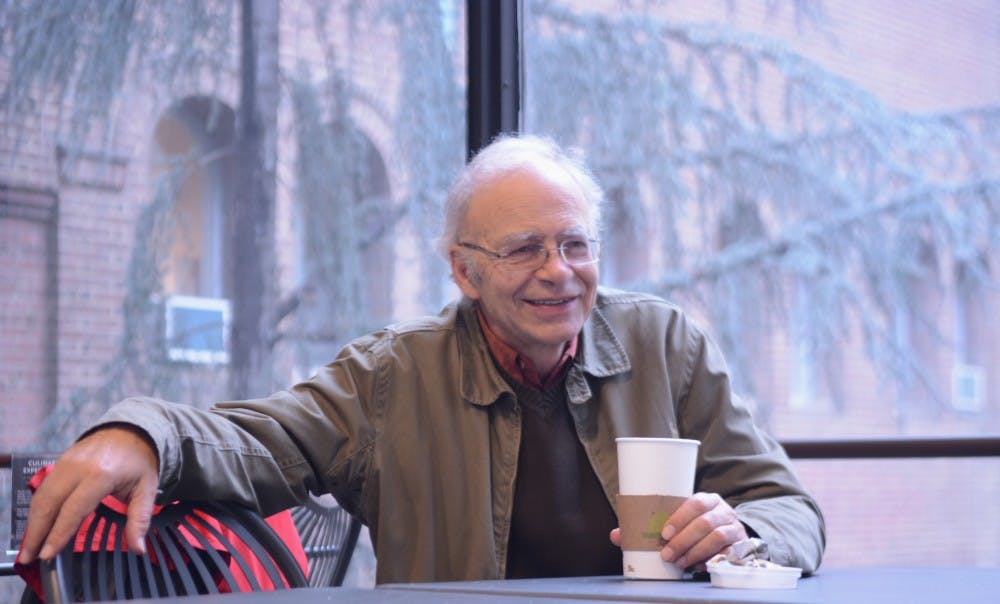
Next time you buy your Starbucks coffee, think about the money that you could be sending to a third-world country.
This is the type of idea that philosopher and Princeton professor Peter Singer proposed at the Penn Museum Wednesday evening. The topic of his speech was “effective altruism” — the method of giving charity in the most cost-efficient way. For Singer, this means giving to developing countries rather than domestically, where the change from your mid-afternoon coffee break will make a greater impact.
Students at Penn are already engaging in the type of altruism that Singer proposed. Two Penn student groups, Giving What We Can and One for the World hosted the event Wednesday night. One for the World is a movement started by Wharton MBA students, who decided to commit 1 percent of their future incomes to the world’s most effective charities and encourage others to do the same, just about a coffee a day. Penn’s new chapter of Giving What We Can, an international society that focuses on similar issues of cost-effective giving, is open to undergraduates as well.
Almost everyone living in developed nations has the ability to give, Singer said. A dollar a day for a year can almost double the salary of a person in a third-world country, he added. He argued that people in developed countries consume much more than they need to, wasting money that could help solve issues of global health and poverty.
According to Singer, very few developed countries are giving their fair share. Only five countries give the UN recommended percentages of their gross national income — 70 cents per $100 in foreign aid. The US is not one of these countries. While Americans believe their government gives 25 percent of the national budget to foreign aid and should give 10 percent, the reality is that the US gives less than 1 percent .
Singer used the example of the cost of training a seeing eye dog to explain the benefit of giving globally. With the money it costs to train one seeing eye dog in America, blindness from bacterial infection can be prevented in 1,000 to 2,000 people living in developing nations. Ultimately, there is greater value in giving to developing countries rather than developed countries.
Singer pointed out that effective altruists are not necessarily the people you would think they are. “Some of them work on Wall Street,” he said. He mentioned a former student of his whose Wall Street salary enables him to give more than $100,000 a year to effective charities. Although unconventional, working in the financial industry allowed this Princeton grad to maximize the amount of good he could do in the world, even though it meant forgoing the typical lavish lifestyle.
Postdoctoral student Jan Lindemans , whose research includes some of Singer’s work, felt that seeing him in person was an entirely different experience than reading his theories. “You actually have to see the guy in person to get the kick in the butt and do something,” he said.
The Daily Pennsylvanian is an independent, student-run newspaper. Please consider making a donation to support the coverage that shapes the University. Your generosity ensures a future of strong journalism at Penn.
DonatePlease note All comments are eligible for publication in The Daily Pennsylvanian.








